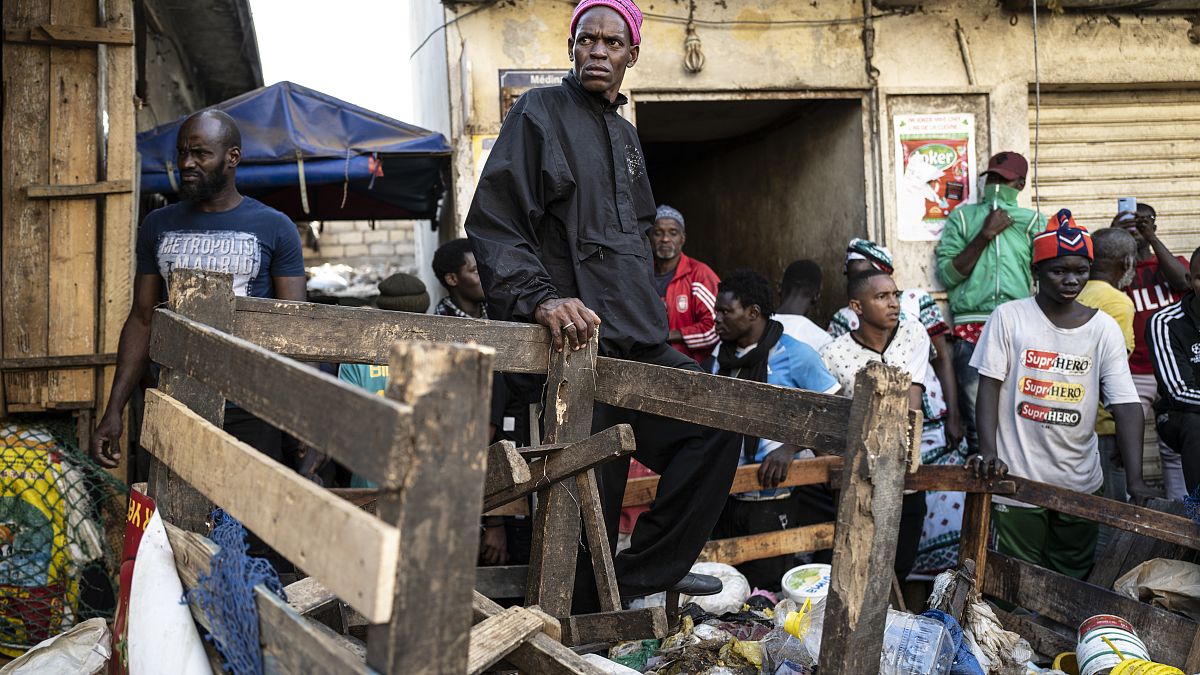Human rights campaigners warn that anti-corruption measures are being ignored in the rush to send financial aid to countries in need.
Transparency and anti-corruption measures should be included in emergency financial relief packages given to countries in need during the coronavirus pandemic, global rights groups have warned.
More than 90 nations have already requested urgent assistance from the International Monetary Fund (IMF), which has made it clear it wants to get loans and other aid approved as quickly as possible.
However, campaigners are concerned that measures to fight corruption that would be applied in normal circumstances may go by the wayside in the rush to help the needy — and that consequently, money may fall into the wrong hands.
The heads of three agencies — Transparency International, Human Rights Watch and Global Witness — have written a joint letter to the IMF Executive Board to sound the alarm.
Anti-corruption progress 'risks being undone'
In the letter, the international campaign directors say they "deeply appreciate" the international effort to respond to the need for urgent funds.
"Nevertheless, we are concerned that unleashing massive amounts of money without including basic transparency and anti-corruption measures risks undoing the significant progress the fund has made in tackling corruption in recent years," they warn.
The agencies cite a US$120.9 million (€110.9 million) handout to the Kyrgyz Republic to address the COVID-19 pandemic, describing the Central Asian country's single anti-corruption commitment as "woefully inadequate".
Even at this early stage of the pandemic, they point to dozens of media reports of coronavirus-related crime and corruption — highlighted by the Organized Crime and Corruption Reporting Project (OCCRP).
Suspicious cases in Europe include contracts to supply protective equipment in Slovenia allegedly awarded to a gambling mogul, and a company that usually deals in office supplies and fashion products.
In Italy there is concern that alleged fraudsters have obtained contracts to supply masks, gloves and disposable gowns to health services -- despite assurances by Italian authorities that companies are stringently vetted.
Fears that mafia groups may take advantage
The scale of the crisis in Italy has sparked fears that mafias could take advantage of the situation and fuel social unrest, particularly in the country's south.
"Palermo has completely changed and it's not governed by the mafia anymore. I don’t want to think that the lack of understanding from the central government is going to give mafia organisations a chance to take control of companies and take advantage of people's rage both in the north and the south of the country," Leoluca Orlando, the mayor of Palermo, told Euronews.
"Mafia organisations operate using corruption, they control companies and those that don’t have liquidity and resources to re-open are particularly at risk. That’s why the latest decree that offers loans completely guaranteed by the state is very important," he said.
Ensuring money ends up in the right hands
There is praise for the IMF's drive in recent years to root out corruption. But the current crisis shows the Fund needs "to establish basic measures to ensure that the money received by countries is used in a transparent and accountable manner to reduce the risks of misuse and corruption," the letter says.
It lists several steps it argues can be taken: reiterating a commitment to anti-corruption, demanding transparency in public procurement, insisting on audits, and enforcing existing measures to tackle corruption and money-laundering.
The IMF is stepping up efforts to respond quickly to the scale of the international crisis -- which on Thursday brought a warning that half a billion people worldwide could be pushed into poverty by the pandemic.
Last week, the Fund said it was mobilising its entire envelope of $1 trillion to accommodate the surge in demand it said had "skyrocketed" from countries in need. As part of that, it was aiming to double the availability of emergency funding for emerging market and developing countries from $50 billion (€45.85 bn) to $100 billion (€91.7 bn).
Options reportedly being considered include creating a short-term liquidity line, to get money quickly to the neediest nations.
The World Bank and G20 finance ministers are also due to hold key meetings next week to address the economic fallout from the pandemic.
